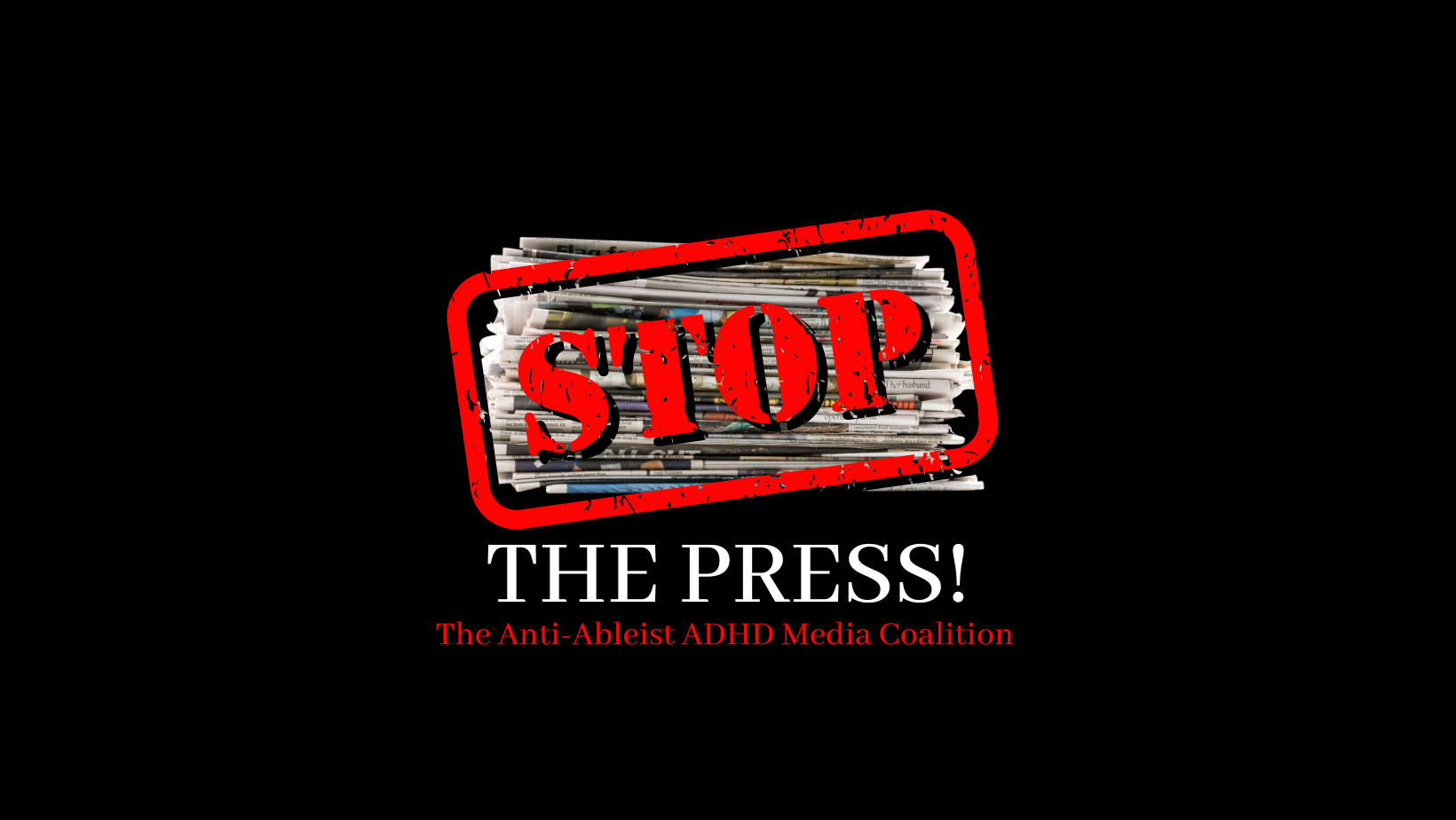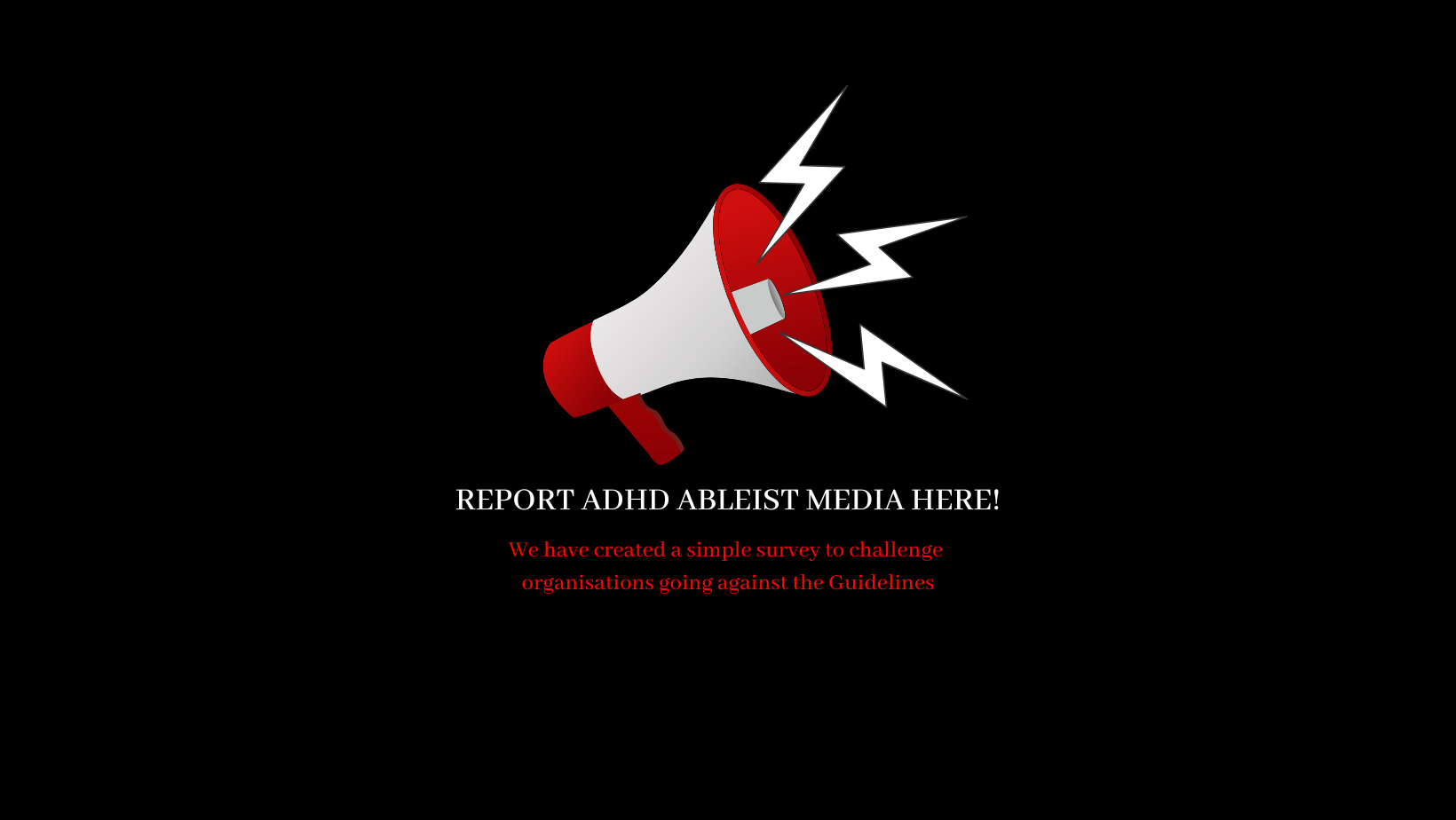
Ableist media is causing serious harm to
the ADHD community.
As a result, we have come together to compose
five simple guidelines as a framework for the media.
-

In following these guidelines your organisation is actively demonstrating that it cares about the impact its coverage has on vulnerable readers, viewers or listeners.
Our intention is to work with the media to help prevent abelist coverage. Ableism is akin to racism, sexism and homophobia and is just as damaging. ADHD is a disability under the Equality Act 2010 and has the same protection in law.
-

We have supplied evidence based facts to provide knowledge to anyone lacking understanding and compassion in order to inform the necessity of following The Guidelines.
All facts are accurate. Provided by the registered charity ADHDadultUK (charity number 1197347) -

Publication and broadcast media are obligated by The Equality Act, 2010 to ensure that their coverage does not cause those with ADHD to be treated less favourably in their public and private lives.
Our Guidelines are informed by: Clause 12 of the Independent Press Standards Organisation’s Editorial Code, and The Office of Communication (Ofcom) Broadcasting Code, sections 2 and 5
In the interest of public safety,
it is essential to use the five simple guidelines when discussing ADHD.
Organisations choosing not to do so will be challenged by the Anti-Ableist ADHD Media Coalition.
We are a coalition formed of the charity ADHD Adult UK, their board of trustees, ADHD As Females - The Podcast, The ADHD Adults Podcast, Disability Campaigners including Cat Owens, Author Hana Walker-Brown, The ADHD Alliance, Abigail Agyei MBE, Jacob Kelly @adhdfatheruk, Wirral ADHD, Hester and Kelly Granger - Perfectly Autistic, Cumbria Adult ADHD Charity, and our combined global followers and listenership amounting to tens of thousands.
